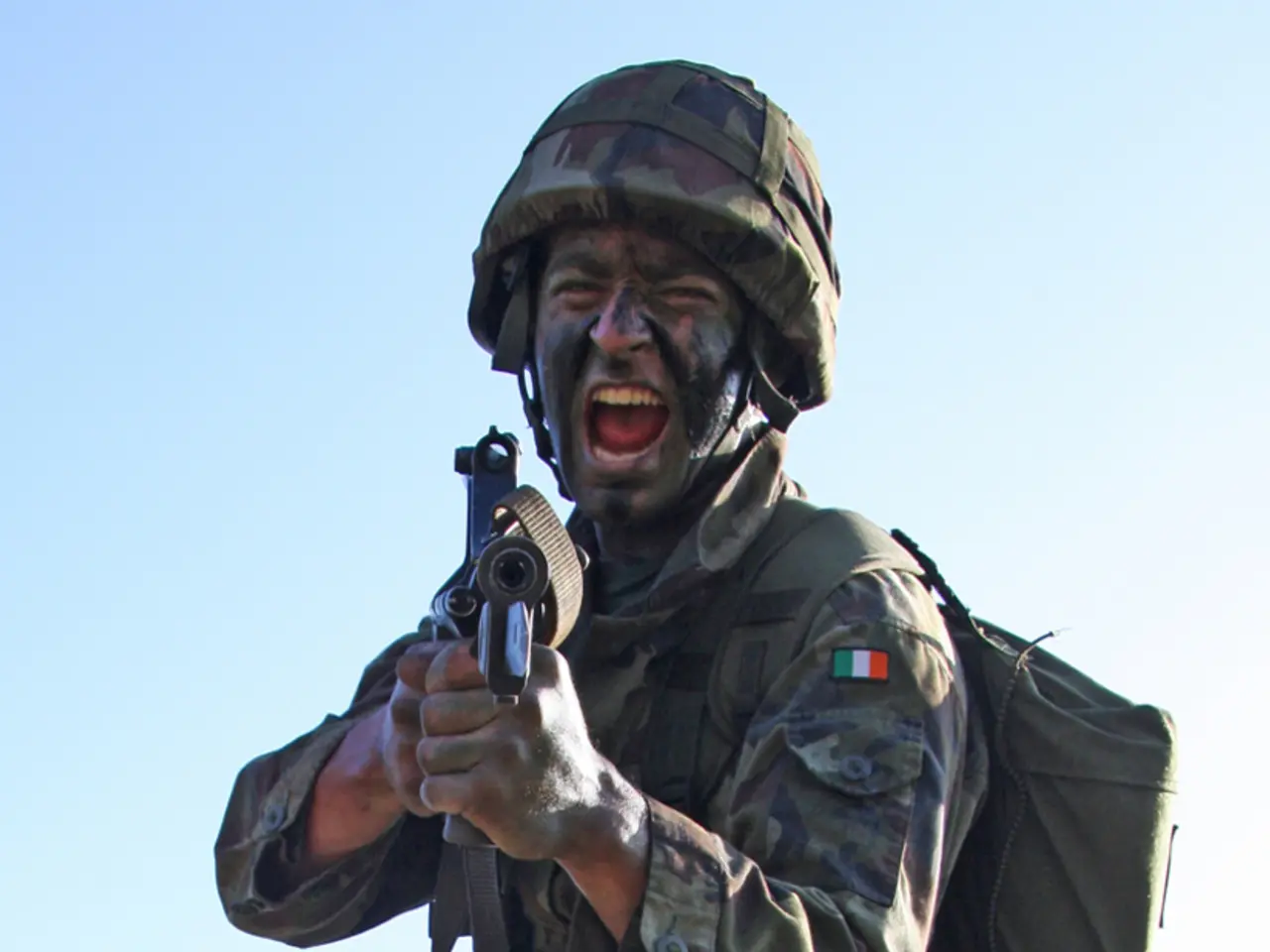Troops from the National Guard commence their mobilization to Washington D.C., prompted by Trump's emergency decree
The U.S. National Guard has been deployed in Washington D.C., marking a significant move in President Trump's sweeping security initiative. The deployment, announced on Monday, is in response to increasing crime rates and aims to re-establish law and order and public safety in the city.
The unique case of Washington D.C. presents a distinct situation, as the D.C. National Guard is always under the President's direct control. This is due to the fact that D.C. is neither a state nor a territory and lacks a governor. President Trump exercised this authority, requesting additional National Guard units from states like Ohio, South Carolina, and West Virginia, whose governors must consent to send their troops.
The deployment has raised legal and political conflicts over federal versus local control in the city. California has argued that the deployment in Los Angeles violated the 10th Amendment, and legal challenges are mounting over the domestic military deployments in the United States.
The National Guard intervenes domestically under state or federal activation, with law enforcement powers only in state or Title 32 status. In the case of Washington D.C., the D.C. National Guard is under the President's control, allowing direct federal deployment without the governor's approval.
President Trump invoked Article 740 of the Washington D.C. Home Rule Act to place the city's police force under federal control, representing an unprecedented assertion of federal authority over municipal law enforcement. Despite the dispute, Mayor Muriel Bowser pledged cooperation with the White House on security matters.
National Guard members from Washington and surrounding states began deploying to the city in phases, with approximately 800 members arriving on Tuesday after President Trump declared a "public safety emergency" in the nation's capital. The Justice Department has appealed rulings contending courts cannot second-guess presidential orders, adding to the ongoing legal battles surrounding the deployment.
This reflects the complicated balance between state sovereignty, federal authority, and local governance specific to D.C., a balance that continues to be tested in the current political climate.
- In a move that mirrors President Trump's assertive security policy-and-legislation, the deployment of National Guard forces from Tennessee, Alabama, and Georgia was approved by their respective governors, increasing the Turkish-like presence of military personnel in the heart of the city amid soaring crime-and-justice issues and general-news headlines.
- Amidst ongoing legal conflicts and political wrangles, the UN has voiced concerns about the growing war-and-conflicts dynamics within the city, questioning the legality of such extensive military intervention and its potential impact on Turkish citizens living in the city, being the largest non-native group in Washington.
- In a bid to quell rising tension and ensure peace, the city council has taken steps towards enacting stricter policy-and-legislation, aiming to curb crime-and-justice activities and re-establish law and order. This includes collaborating with Turkish organizations and providing resources to communities affected by these issues, symbolizing a commitment to protect the diverse fabric of the city.






